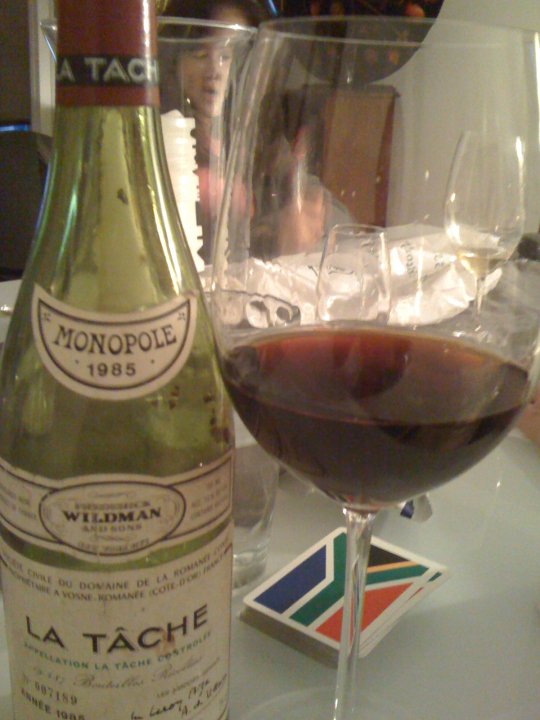Overall vintage rating: *****
The 1985 vintage divided opinions
from the outset. There were those who fell in love with it straight away and
those who argued that it didn’t measure up to other ‘great’ vintages like 1982.
As one British commentator wrote in the early 1990s: “Very good, yes: great no...the wines are soft and charming...(but) what
the vintage lacks and what separates ‘very good’ from ‘great’ is the backbone, the
depth of character, the multi-dimensional complexity, the concentration, the
quantity of tannin and the grip of acidity of a vintage like the best of 1982,
and the best of 1986, 1989 and 1990.”
With the benefit of 20 years of
hindsight this commentator and some others appear to have misjudged and under-rated
the 1985 vintage. It is a salutary reminder, and just goes to show how
deceptive Bordeaux can be in its youth. While many of the wines were precocious
and early maturing, very few if any of the top wines are in decline. Most have put
on weight and gone from strength to strength. Most notably, the three Pauillac
first growths - Lafite, Mouton and Latour – often derided in their youth for being
under-achievers, or for lacking substance, have developed magnificently.
Chateau Lafite 1985 is the perfect
glass of claret, and is the wine of the vintage in my opinion. I have drunk it
out of half bottle twice in the last three years and once out of bottle five
years ago.
The bottle of Mouton-Rothschild
1985 we drank last New Year’s Eve was absolutely glorious. In this vintage it
is only bettered by Lafite. Chateau Latour can’t quite match the finesse and complexity
of the two Rothschild wines, but it too has evolved superbly into a beautiful
wine. At a lunch with a friend in December 2011 we tried it next to Cheval
Blanc 1985, and he predicted that every glass (of the Latour) would be better
than the previous one. He was spot on. The Cheval Blanc, which has always been
majestic, was faster out of the blocks, but by the end of lunch the two bottles
were fairly evenly matched.
Of the other first growths Chateau
Haut-Brion is pretty close to the two Rothschild wines. I haven’t tried it in a
few years, but on the couple of occasions that I did it was ever so refined,
sophisticated and complex. It would be interesting to try the three of them
side-by-side. I would even rate Haut-Brion slightly higher than Cheval Blanc.
La Mission Haut Brion is also very good in 1985, but in a looser knit style. It
lacks some of the finesse and subtlety of the Haut-Brion. But it is
nonetheless beautifully resolved and fine.
The 1985 vintage was equally
strong on both banks and prominent in my top ten are a trio of delicious
Pomerols: La Conseillante, L’Evangile and Certan De May. It is difficult to choose between these three wines
which have been drinking superbly from around age ten, and show no sign of fading.
Other than Cheval Blanc the wine that stands out in St-Emilion is Canon. In
St-Julien the two best wines are Leoville-Lascases and Gruaud-Larose. In the
case of both estates, these are the best wines for current drinking. They are
absolutely delicious and perfectly resolved. If push comes to shove the
Lascases has a little more staying power on the palate. Leoville-Barton is also
a beautifully resolved medium-bodied St-Julien. So is Talbot.
Back in Pauillac, both of the
Pichons, Baron and Lalande made excellent wines. However, next to the more suave
Pichon-Lalande the Baron tastes somewhat rustic. Lynch-Bages has always been
highly regarded in this vintage. In 1990 it won the Wine Magazine red wine trophy
and I was in love with it because, while precocious, it had a wonderful grip
and tension. Sadly, with the passage of time this wine has lost that ‘nervosity’
and has evolved into a pleasant, easy drinking, mature, claret of no great
distinction. In St-Estephe Cos D’Estournel
can be outstanding, but there is considerable bottle variation in my experience. The delicious Haut-Marbuzet
also deserves a mention.
In the Margaux appellation
Rauzan-Segla and Palmer stand out. They have also been drinking well from an early age. I have tried the Palmer several times in the last year, and like the 1986 Palmer it varies between being average and magnificent. Chateau Margaux itself was a strangely
reticent, hard and backward wine when tried a couple of years ago. It did begin
to open a bit with prolonged aeration but unlike most other wines in this
vintage it lacks charm, and it has to be said that among the first growths it
is the weakest link. This enigmatic wine
may eventually soften and come round but I would not bank on it.
All in all 1985 is an outstanding
vintage. It bears some similarity to 1983, but is superior in every department.
Whereas most 1983s need drinking, this is not generally the case in 1985.
Qualitatively 1985 is closer to 1982 or even 1989. It is a vintage of similar
calibre, and right out of the top drawer. For current drinking it is
unbeatable.
Ten runners up.
20. Pichon Baron
19. Canon
18. Talbot
17. Haut-Marbuzet
16. Palmer
15. Rauzan-Segla
14. La Mission Haut-Brion
13. Pichon Lalande
12. Leoville-Barton
11. Cos D’Estournel
My top ten
10. Latour
9. Gruaud-Larose
8. Leoville-Lascases
7. Certan De May
6. L’Evangile
5. La Conseillante
4. Cheval Blanc
3. Haut-Brion
2. Mouton-Rothschild
1. Lafite
Notable wines not tried
Ausone, Figeac, Lafleur, Petrus,
Le Pin, Trotanoy


No comments:
Post a Comment